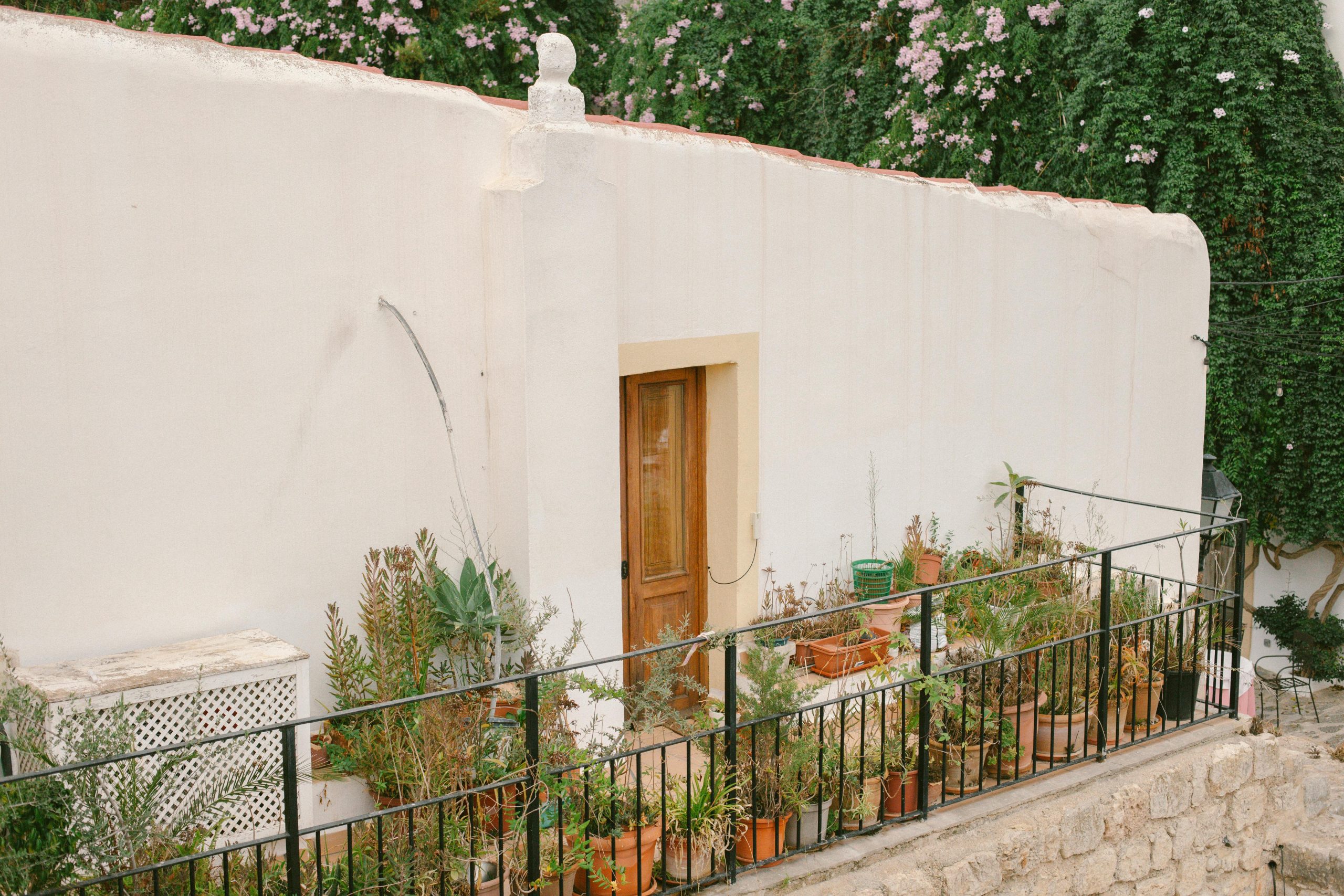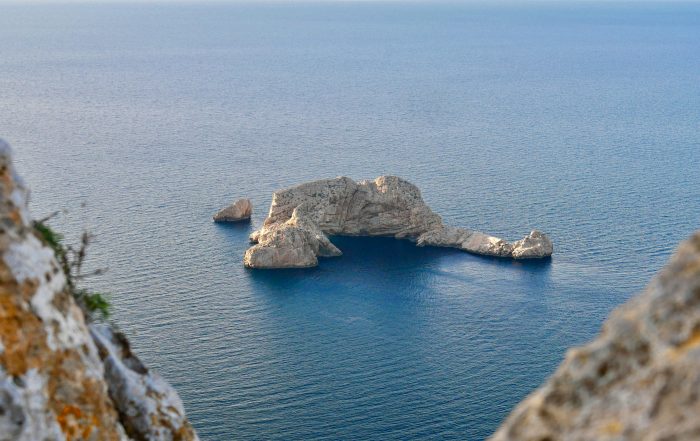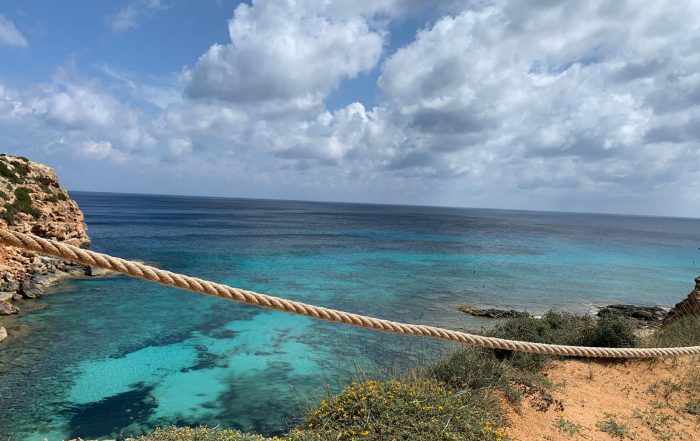Can You Build on Rustic Land in Ibiza? The 2025 Rules Explained
Real Estate Law
Can I build on rustic land in Ibiza? The answer is never simple, it’s a legal maze shaped by environmental priorities, urban planning rules and ever-changing legislation. In this article, we’ll break down the 2025 framework so you know exactly what’s possible, and what’s not, before you even consider buying.
Table Of Contents
Can You Build on Rustic Land in Ibiza? The 2025 Rules Explained
The Short Answer: A “No” with a Very Big “But”
The straightforward answer to “Can I build on rustic land in Ibiza?” is no, not freely. The primary purpose of suelo rústico is agricultural or environmental preservation, not development.
However, it is possible to build a single-family home under a strict set of conditions. These are not national rules but are dictated by two key pieces of legislation:
- The Balearic Urban Planning Law (LUIB), which sets the regional framework.
- The Island Territorial Plan (PTI) of Ibiza, managed by the Consell Insular d’Eivissa, which defines the specific, and much stricter, local regulations.
The Key Pillars of a Viable Project
To build legally on rustic land in Ibiza, your project must stand on several solid pillars defined by the Island Territorial Plan (PTI). Failing to meet even one of these requirements means the project is non-viable from the start.
The Land Itself (The Plot)
Is the plot viable for construction? This is the first filter, and it is the most unforgiving.
- Minimum Plot Size: For a new single-family home, the plot must be a single registered entity (finca registral) of at least 15,000 m² in Suelo Rústico Común (Common Rustic Land). You cannot aggregate smaller adjacent plots to reach this minimum. In some specific zones, this requirement can rise to 50,000 m².
- Protected Areas (Zero Tolerance): If any part of the plot falls within a protected designation like ANEI (Área Natural de Especial Interés), building a new home is, with very few exceptions, completely prohibited. The Consell Insular d’Eivissa enforces a zero-tolerance policy on illegal constructions in these zones, with demolition orders and significant fines.
The Building (The Project)
If the plot is viable, what can I actually build? Even on a 100,000 m² plot, you cannot build a mansion. The PTI imposes strict limits to preserve the island’s character.
- Maximum Buildable Area (Edificabilidad): This is the total constructed surface area of all buildings combined (main house, guest annex, garage). The absolute maximum is typically capped at 320 m² for residential use, a limit that applies regardless of the plot size.
However, the PTI also allows for a larger total buildable area of up to 420 m² for projects that include a genuine agricultural use, such as a dedicated warehouse or barn, in addition to the dwelling - Maximum Footprint (Ocupación): This is the total surface area the buildings occupy on the ground. It is usually limited to a very small percentage of the plot (e.g., 1.5% – 2%).
It’s important to note that the PTI also establishes limits on the total constructed volume (in m³), which is a crucial factor in regulating the height and overall size of the building, ensuring the project integrates with the landscape. - Aesthetics and Siting: The design must integrate with the traditional landscape. Regulations also dictate the maximum height (usually one storey) and the minimum distance (retranqueos) the building must keep from property boundaries and roads.
Real-world Example: A 25,000 m² plot that meets all criteria can still have a maximum buildable area of only 320 m². The size of your plot does not increase the size of the house you can build beyond this cap.
The Infrastructure (The Services)
How will the property function? A building license isn’t just for the house; it’s for a habitable dwelling. You must guarantee its self-sufficiency and legality.
- Legal Access: The plot must have a legally recognized access to a public road. A simple dirt track is often not sufficient. This is a non-negotiable legal requirement.
- Water Supply: You must have a legal water source. This means either a connection to the mains (rare in rustic areas) or proof of a legal well. Furthermore, a rainwater collection cistern (aljibe) is mandatory for all new builds.
- Energy and Efficiency: The project must comply with Spain’s national building regulations (Código Técnico de la Edificación – CTE), including modern energy efficiency standards.

A Note on Existing Buildings: The 2024 Legalisation Decree
What if a building already exists but is not legal?
It is crucial not to confuse building a new home with legalising an old one. In 2024, the Balearic Government passed Decree Law 3/2024, creating a temporary and extraordinary path to regularise certain unauthorised constructions built before 2018.
However, the conditions are very strict:
It does not apply to buildings on highly protected land (like ANEI).
The legalisation requires payment of significant fees to the Town Hall.
Crucially, it includes an express prohibition on using the newly legalised property for tourist rentals.
The Legal Process: From Due Diligence to License
- Verify the Land Status: Before purchase, a lawyer must obtain a Certificado de Aprovechamiento Urbanístico from the local Town Hall (Ayuntamiento). This official document confirms the land’s classification and its viability for construction.
- Engage Professionals: You will need a qualified architect to design a PTI-compliant project and a lawyer to oversee the legal integrity of the purchase and application.
- Submit the License Application: The architect’s project is submitted to the Town Hall to apply for the building license (Licencia de Obra). Be prepared for a meticulous review process that can take 12 to 24 months.
A Challenging Path to an Unparalleled Reward
So, can you build on rustic land in Ibiza? Technically, but only if your plot is large enough and complies with the PTI, and provided it is not located within a protected area.
Even then, the legal, technical and environmental requirements make the process highly complex.
Building on rustic land in Ibiza in 2025 is more challenging than ever before, but not impossible.
The regulations are designed to protect the island’s unique character, so carrying out thorough legal and technical due diligence is essential.
Although the process is complex, it is important not to go through it alone.
FAQs on Building on Rustic Land in Ibiza
1. What about the new Decree Law 3/2024 for legalizing old constructions?
This new decree offers a temporary and extraordinary opportunity to legalize certain out-of-regulation constructions on rustic land that were built before January 1, 2018. However, it is not a general amnesty. The process has strict conditions: the construction cannot be on protected land (like ANEI), the owner must pay a fine, and environmental improvement measures are required. It’s a complex process that has a three-year deadline from its entry into force, so it requires expert legal guidance to assess eligibility.
2. Can I renovate an old, ruined finca on a small plot?
Yes, often you can. The regulations for renovating existing, legally recognized buildings are different from those for new construction. In many cases, you do not need to meet the 15,000 m² minimum plot size to restore a ruin. However, the project must strictly adhere to the original footprint and volume of the old building, without allowing for extensions.
3. What happens if I build without a license?
The consequences are severe. The Balearic authorities have a strict inspection regime. Illegal constructions face a significant fine, a demolition order at the owner’s expense, and potential legal proceedings. It’s a risk that can lead to the complete loss of your investment. If the construction is on protected rustic land, the violation is imprescriptible, meaning the threat of demolition and sanctions never expires.
Discover all our services and contact our experts now. Follow us on Linkedin to make sure you don’t miss a thing.
This article is for informational purposes only and does not constitute legal advice. Regulations may change. For tailored support, contact a qualified legal advisor



